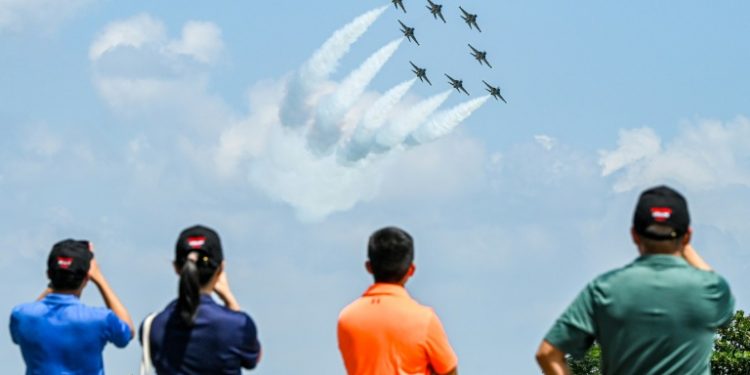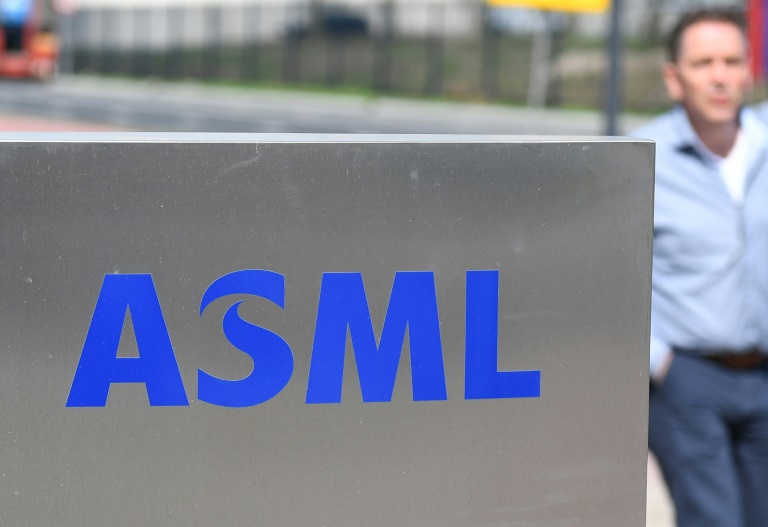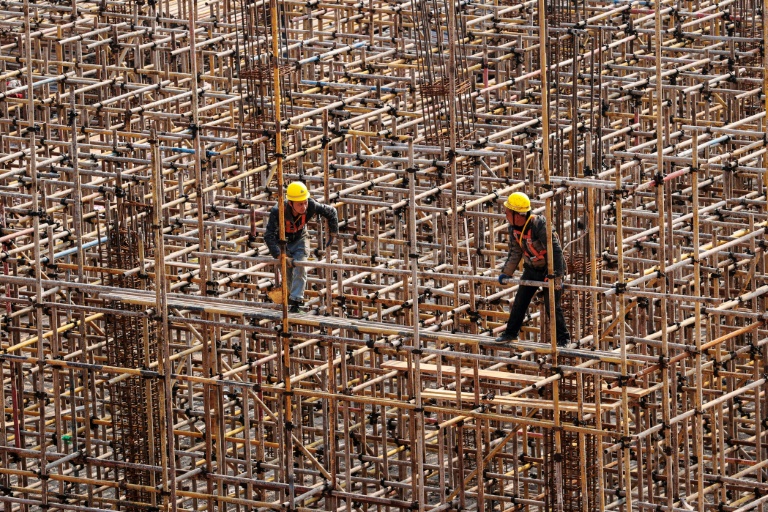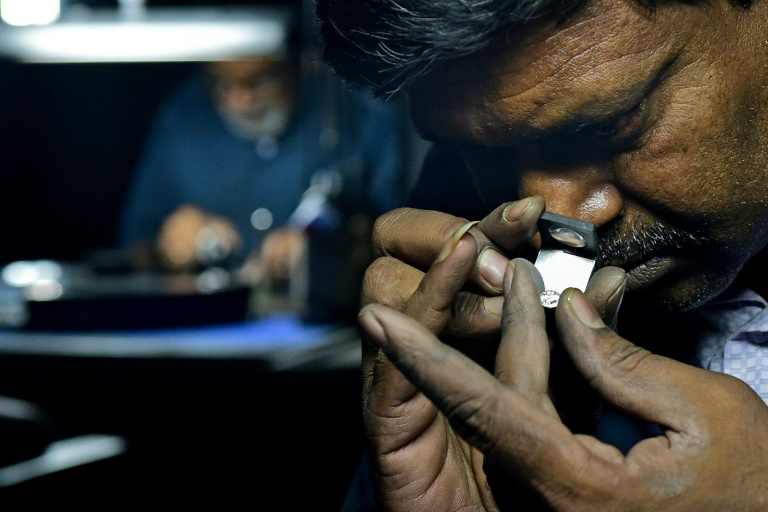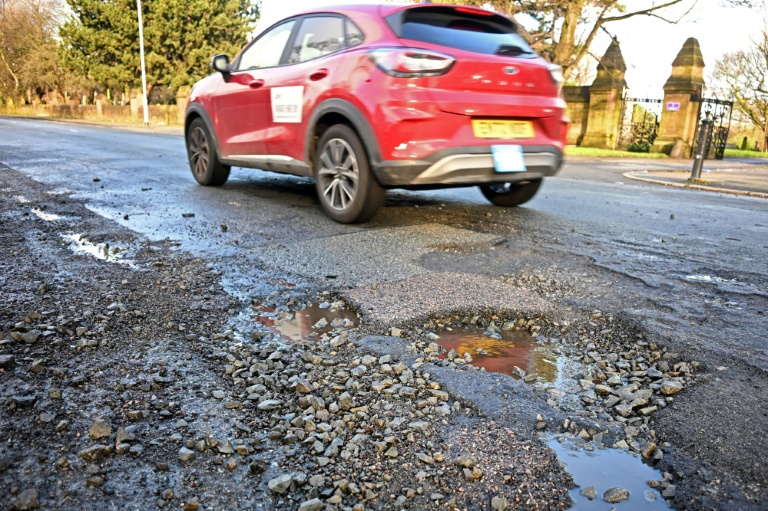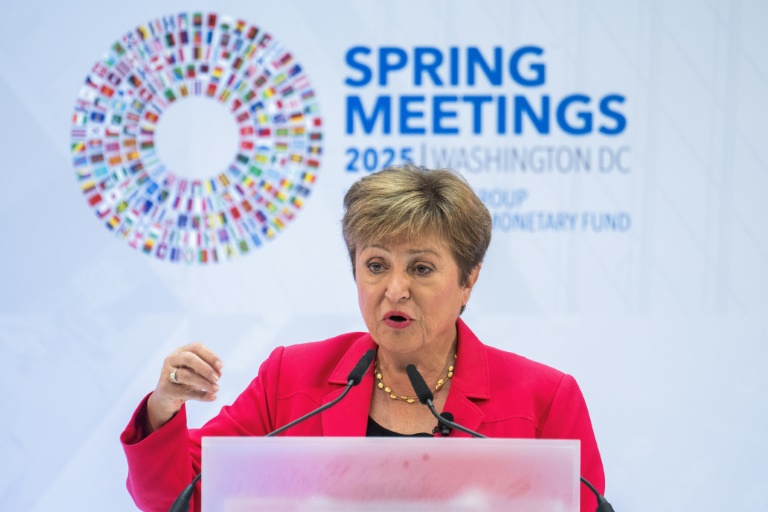Singapore (AFP) – China’s first domestically produced passenger jet was presented at Asia’s biggest airshow, which opened in Singapore on Tuesday, as Beijing seeks to stamp its presence in global aviation.
With its C919 aircraft, Beijing wants to challenge the decades-long dominance of top plane-makers Airbus and Boeing while reducing its reliance on foreign technology.
The single-aisle model from COMAC is a potential competitor to the market-leading A320, made by Europe’s Airbus, and the 737 MAX from US-based Boeing — which kept a low profile at the Singapore Airshow following a recent safety crisis.
On the first day of the event in the city-state Tuesday, the C919 wowed the crowd of trade exhibitors, aviation executives and officials with sleek aerial manoeuvres, sporting a white, green and navy-blue livery.
It will take part in the daily flying displays at the six-day event, and features among the static exhibits at a sprawling site near Changi Airport.
A C919 plane in the China Eastern livery was among dozens of commercial and military aircraft on the ground.
Beside it were two ARJ21s, smaller commercial jets also made by state-owned Commercial Aircraft Corporation of China (COMAC).
The C919 has been making commercial flights in China since May, and was displayed for the first time outside mainland China in Hong Kong in December.
While it has yet to attract buyers outside the country, the C919 scored its first order at the airshow from China’s Tibet Airlines, which signed a contract to buy 40 of them and 10 ARJ21s.
Henan Civil Aviation Development and Investment Group also bought six ARJ21s which it will use for firefighting, medical service and emergency management, COMAC said in a statement.
A spokesperson for COMAC at the airshow would not give a value for the order.
Although the airshow is a good opportunity for Beijing to show off the C919, finding a big-name buyer will be hard, said aviation analyst Shukor Yusof of Singapore-based consultancy Endau Analytics.
“There’s still a stigma with the ‘made-in-China’ brand in the aviation industry, even if China now leads the world in the electric vehicle market,” he told AFP.
“It will take time for the C919 to land an order from a major carrier,” he said, even though it’s “a matter of when, not if, a top-tier airline buys a Chinese-made commercial jet”.
Underscoring China’s strong presence at the airshow, Beijing also showcased its military capabilities, exhibiting for the first time at the airshow the Z-10ME attack helicopter, its answer to the US-made Apache.
– Boeing ‘lying low’ –
More than 1,000 aviation and defence companies are taking part in the airshow, which is held every two years.
China, South Korea and the Czech Republic will have country pavilions for the first time, and Airbus is showcasing its new long-range A350-1000 plane.
While Boeing will be in attendance, it is not presenting any physical commercial aircraft, unlike in previous years.
The company is still smarting from a near-catastrophic incident in January, when a fuselage panel on a Boeing 737 MAX 9 Alaska Airlines jet blew off mid-flight.
The incident, which caused only minor injuries, led the US Federal Aviation Administration to ground more than 170 MAX 9 planes for around three weeks.
“Boeing is intentionally lying low and avoiding the limelight as it struggles with an antiquated product line, the 737 family,” Shukor said.
Airbus showed off its A350-1000, which is taking part in the flying displays using sustainable aviation fuel, a key discussion point at the event.
Organisers expect the show to draw 50,000 trade attendees from around the world — close to pre-pandemic levels.
A watered-down airshow was held in 2020 after many of the exhibitors pulled out, and the 2022 edition went ahead but without the two days open to the public.
“2018 was the highest we’ve ever had. We are close to the best we’ve ever had,” said Leck Chet Lam, managing director of event organiser Experia.
This reflects the global recovery of air travel, he said.
“International passenger traffic has almost returned to pre-pandemic levels and is projected to more than double by 2040,” said Cindy Koh, executive vice president of the Singapore Economic Development Board.

